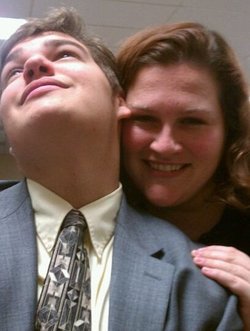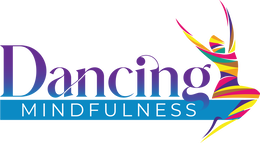 From 2008-2011, I had the awesome experience of being able to work as an assistant speech coach at Howland High School with some extraordinary young people. One of my students, Eric DiBell, wrote this national-qualifying Original Oratory for the 2010-2011 season, inspired by his own love of Star Wars. With recent pieces surfacing about the fantastic psychology lessons in Star Wars, I asked Eric if I could share his speech from his junior year with my readers. Eric is now a senior in college at the University of Toledo. There Is No Try by Eric DiBell Not so long ago, in this exact galaxy, I retreated to my man-cave and watched my favorite trilogy- yes, trilogy- for the 202nd time. This trilogy, the greatest science-fiction opera, the biggest fantasy saga epic of all time (you may have heard of it) a small, not-so independent series called… Star Wars! I have a confession: I am a Star Wars fanatic. For example, I tend to start each story I tell with Episode 4, (makes perfect sense to me). I always warm up for a Speech round by boasting the suave attitude of Han Solo, the man every guy wants to be and every girl wants to be with, and yes, I do in fact own a Boba Fett PEZ dispenser… What? Don’t pretend you don’t have one. Side effects of my condition include: my denial over the destruction of Alderaan (which is spelled with 3 A’s by the way), I refuse to accept my own father as my greatest enemy, and I am man enough to admit my unnatural obsession with hair buns and solid gold bikinis. But in all seriousness, looking past the lightsaber battles, comedic droid duos, and war-mongering teddy bears, I managed to ascertain a much deeper meaning. While watching The Empire Strikes Back, one scene struck me like a proton torpedo. In this scene, Yoda, the galaxy’s greatest self-help guru, requests that his apprentice Luke Skywalker elevate an entire spaceship using only the Force. Luke, believing himself incapable due to prior experiences of failure – something I can relate to - claims that he will try. In response, Yoda commands, “Do or do not. There is no try.” This idea of trying versus doing ricocheted around my head for a few minutes before I realized the truth. Now, believe me, I'm not just an over-obsessed geek – we call those guys “Trekkies.” Seriously though, several highly-decorated thinkers have published works on this exact topic. John Buri, a psychology professor at the University of St. Thomas and Bill Allin, author of Turning It Around: Causes and Cures for Today’s Epidemic Social Problems also believe that Yoda was onto something. That something is this: each of us tends to adopt a passive “I’ll try” mentality instead of a positive, proactive “I will” mentality. This “I’ll try” attitude is the source of our failure. It's the little doubt in the back of our heads that refuses to let us believe in ourselves. “I’ll try” undermines confidence and leaves us predisposed to failure. As a society we are surrendering to our problems before we even face them. Like the Jedi attaining their knighthood, we must handle these obstacles step-by-step. First we must recognize the infamous “I’ll Try” mentality when it rears its ugly head. Second, we must embrace the “I Will” mentality. And finally, we will examine how a shift in thought can save our society. There are several reasons why the “I’ll Try” mentality may take root in our heads. Dr. Albert Bandura, famed social psychologist, believes that self-doubt arises from low self-efficacy. Negative self-efficacy, according to Bandura, is the disbelief “in one’s capabilities to execute courses of action.” He notes “those beset by self-doubts… lower their aspirations and [thus] their performance deteriorates.” One only has to look at the phenomenal sports teams of Cleveland, Ohio, for proof of this observation. Even I, who prefers the force to a football, can see the self-doubt in the coaches, the players, and the fans. Dr. Jim Taylor, author of The Triathlete’s Guide to Mental Training, who believes that poor confidence is the greatest threat to success, articulates another reason for the “I’ll Try” mentality. He notes that “If you don’t believe you have that ability, then you won’t perform up to that ability.” Low self-efficacy tends to affect those who believe that they lack the ability. You can build self-efficacy by focusing on your personal strengths or, what you have going for you. Like the humble droid C3P0, who instead of fighting in battles, helps others with his skills of translation. Who better to help with communication than someone who knows over 6 million forms of it? C3PO kind of reminds me of my friend Matt. Matt’s not exactly the biggest, baddest guy around. Picture a miniature Napoleon Dynamite or any of the main characters from Revenge of the Nerds… well, that's Matt. You see, instead of facing disappointment from not making the football team, Matt stuck to his strengths in the brainpower department to become captain of the prep bowl team. Because Matt sets attainable goals, he excels at what he enjoys doing. When setting goals, we should adopt the SMART goal setting method. According to Psychology Today, SMART stands for Specific, Measurable, Attainable, Realistic, and Timely. If we set goals using these criteria, we can easily accomplish them. How do you think the Death Star was destroyed? It didn’t just instantly implode! Smaller, easier goals were established and achieved along the way by the Rebel Alliance, culminating in their ultimate victory. Or in non-fanboy terms, if you’re like me, packing plenty of insulation and want to lose a few pounds, start by changing a few lifestyle habits. If you drink regular soda, switch to diet. If you eat white bread, switch to whole grain. Add a daily workout routine and sure enough these changes will take effect. Small accomplishments like these can help build confidence. To maximize our potential, motivational speaker Mark Victor Hansen urges independence. Living life on our own terms slowly builds self-confidence. Take me for example. Worrying what others would think, there would have been no way I could have written this speech. After beating my brains out for weeks, I finally took charge, ignored my self-doubts, and began writing. Like Yoda levitating that heavy X-wing fighter, I freed myself from “I’ll Try” and “I Did.” If we just believed in the “I Will” mindset, we could exceed anything we think we could. Knowing our strengths, we can transcend the “I’ll Try” attitude. Without fear, we’ll take chances. Without doubt, we can overcome obstacles. By doing instead of trying, we make our lives better and, in turn, better society. Maybe we could be the generation to cure cancer, end world hunger, get the Democrats and Republicans talking. As English historian G.M. Trevelyan once said, “Never tell a young person that anything cannot be done. God may have been waiting centuries for someone ignorant of the impossible to do that very thing.” Maybe we could rejuvenate this monotonous, hesitant society we’re living in. Nothing important could ever be achieved with a lackadaisical attitude. Look, even if you absolutely, positively disdain Star Wars, Yoda’s wisdom applies to all of us. If we simply “try”, our doubt and low self-efficacy will lead us to failure. By making small life changes, setting realistic goals, and breaking larger goals into smaller ones, we can learn to become independent. Living life on our own terms builds confidence and dispels any doubts we have in our abilities. If we accomplish these three tasks, this trilogy of sorts, and adopt Yoda’s “Will Do” mindset... anything we can do. Whenever life seems like that immovable spaceship lodged in the swamps of Dagobah, just think of Yoda with his twinkling eyes and all-knowing grin. Remember his wise words: “do or do not, there is no try.” Then, without a single thought about trying, do… and may the Force be with you.
0 Comments
Leave a Reply. |
Dr. Jamie MarichCurator of the Dancing Mindfulness expressive arts blog: a celebration of mindfully-inspired, multi-modal creativity Archives
September 2022
Categories
All
|
Contact |
Memberships & Affiliations |
|
Please direct all inquiries to:
[email protected] © Mindful Ohio & The Institute for Creative Mindfulness, 2021 Terms of Use Privacy Policy |
Dancing Mindfulness/The Institute for Creative Mindfulness is an organizational member of the International Association of Expressive Arts Therapists, the Dance First Association, and NALGAP: The Association of Gay, Lesbian, Bisexual, Transgender, Addiction Professionals and Their Allies; Dancing Mindfulness proudly partners with The Breathe Network and Y12SR: The Yoga of 12-Step Recovery in our shared missions.
|

 RSS Feed
RSS Feed